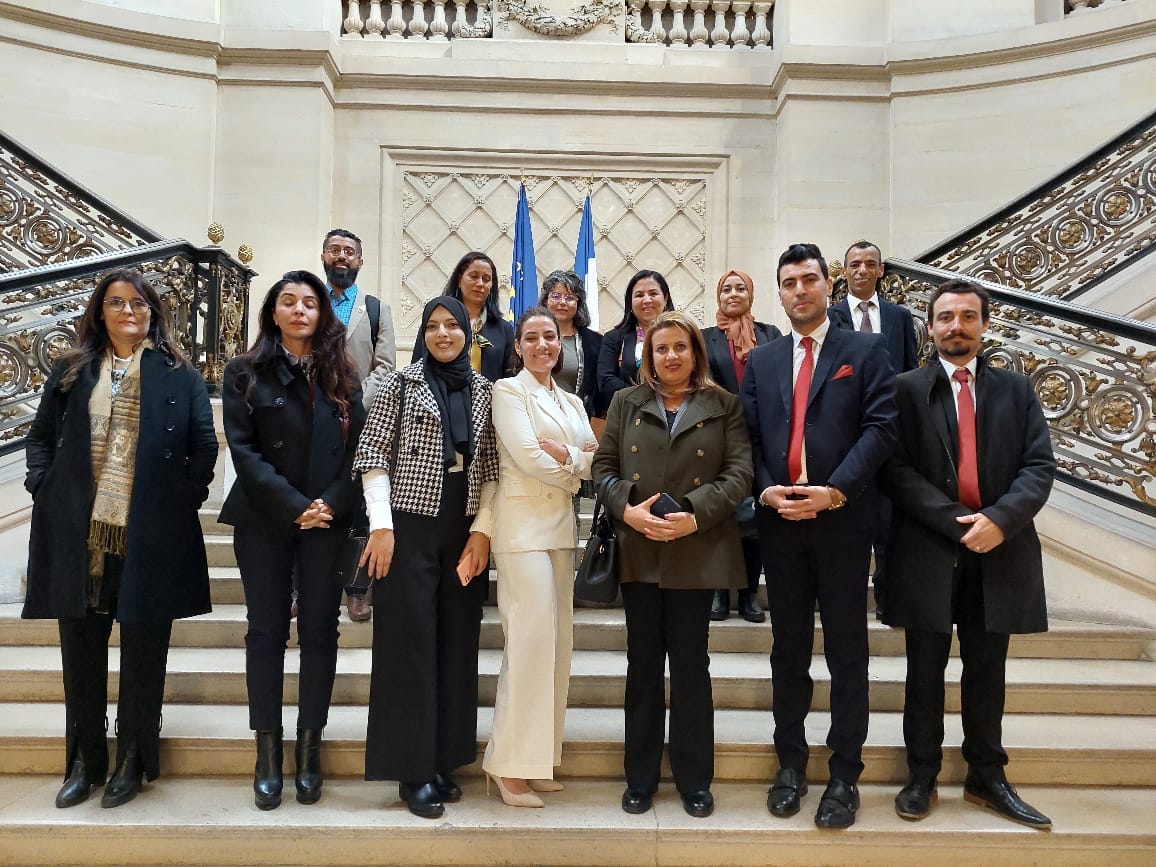For the first time in over half a century, the Tunisian Administrative Tribunal has prepared a strategic and operational plan for the years 2021-2025. The first sentence of the plan enshrines a vision for what the court should be "The administrative court is an independent, modern and inclusive authority that guarantees fair trial and protects rights and freedoms”. This plan is the fruit of a partnership between Democracy Reporting International (DRI) and the tribunal, rooted through the JEDI project.
Ferdaous Ben Sassi-Taje, Project Manager at DRI, describes the strategy as a construction based on the modernisation of administrative justice, with the strategic plan as a strong backbone, and digitalization, governance, legal framework, and training of its members as its four main pillars. "This is what we dreamed of in 2019 and we saw it come true in 2022”, says Sassi Taje.
The strategic plan managed to present several tools that will accelerate judicial time, improve judiciary governance, and introduce performance indicators, among other goals. According to the Administrative Tribunal’s First President, Mr. Abdessalam Mehdi Grissia, "the importance of the strategic plan is to provide and measure the material and human resources needs of the Tribunal over the next five years to achieve a crucial goal of finalising the case log within a reasonable time, for which the Administrative Tribunal requires and makes major efforts”.

Judicial time is one of the most important challenges for the work of the judges of the Administrative Tribunal. According to Rafi Achour, the head of the strategic plan steering committee, this is the reason to "make a strategic plan based on the efficiency of the judiciary, which includes two aspects. The first is to deliver the decision in a short time, while the second refers to communication."
Justice delivered in time by going digital
DRI and the Tribunal worked in tandem to craft four strategic documents, including a strategic plan, its action plan; and a communications strategy, and its action plan. The Court also modernised its website, including a service portal that brings the institution closer to the people – citizens can now submit and check the status of requests remotely. Thanks to the website makeover, users can also request judicial aid and access the Court’s case law (more than 12.000 judgments).
DRI also supported the skill development of magistrates and clerks in the Tribunal through an e-learning platform.

From plan to operation: Raising awareness and learning through exchange
The next challenge consisted in translating the vision set out in the strategic documents developed by DRI and the Court into the institutions’ everyday operations. In October 2022, DRI and the tribunal presented the new guiding documents to judges from central and regional chambers.
“The strategy will help to accelerate the resolution of cases and speed up the review of decisions while giving the chamber’s president the necessary indicators with the judges working with him/her to pursue these issues," says Houssam Eddin Triki, the President of Gabes’s first Instance Chamber, on how the new strategy is helping him fulfill his responsibilities. Triki also raises a lack of capacity and logistics as the main challenges to achieving the objectives set in the document.

Several of the Court’s members traveled to Paris in November 2022 for a working visit to the French Council of State. The Tunisian delegation benefited from exchanges of similar experiences and challenges with their French counterparts. Among other things, Tunisian judges learned more about how French courts are using digitalization to reduce stock cases and communications to raise awareness of the latest jurisprudence among citizens.










